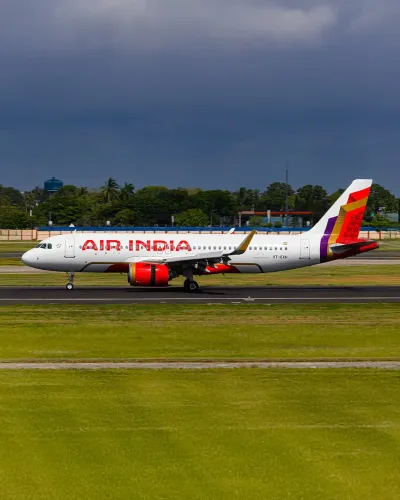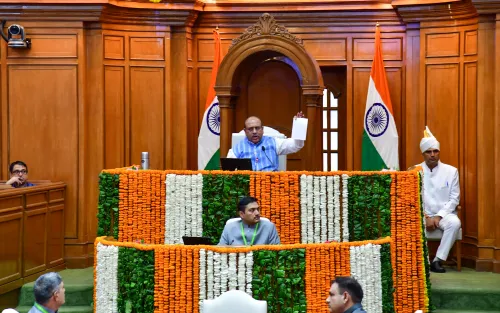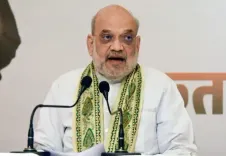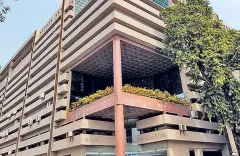How are farmers in the world's highest village in Himachal learning improved techniques?
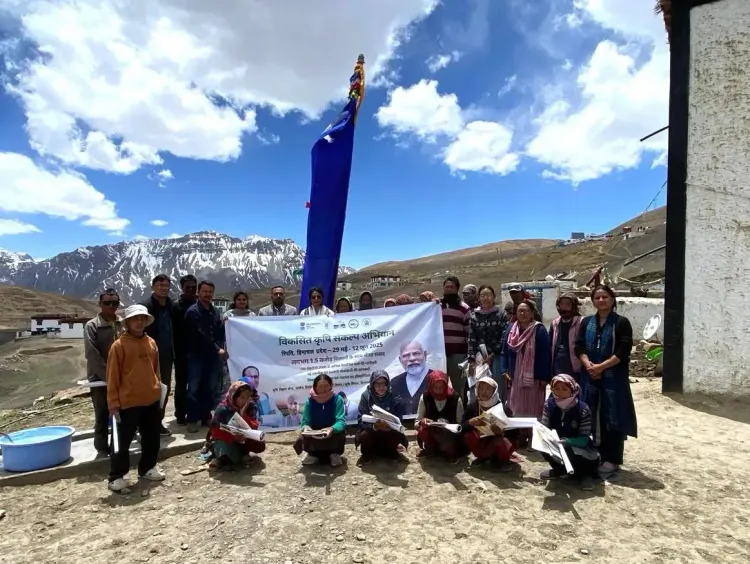
Synopsis
Key Takeaways
- Empowerment of farmers through access to scientific knowledge.
- Focus on sustainable agricultural practices.
- Engagement with local panchayat representatives to boost participation.
- Addressing specific challenges faced by farmers in high-altitude regions.
- Commitment to inclusive agricultural development across the country.
Shimla, May 30 (NationPress) In a significant move to empower farmers in elevated and isolated areas, the Krishi Vigyan Kendra (KVK) at Tabo, operating under the Dr YS Parmar University of Horticulture and Forestry in Nauni and supported by ICAR ATARI Zone-I, initiated the nationwide ‘Viksit Krishi Sankalp Abhiyan’ from Komic, a village in the Spiti Valley renowned for its cultivation of pea and barley.
Perched at an altitude of 4,587 meters above sea level, Komic holds the title of the world’s highest village accessible by a motorable road. The outreach program, which is set to run until June 12, was officially inaugurated by Additional Deputy Commissioner Shikha Simtia.
This 15-day initiative is designed to disseminate scientific knowledge and government schemes to farmers residing in some of the most secluded and ecologically sensitive areas of the nation. This effort aligns with the broader national strategy by the Union Ministry of Agriculture and Farmers Welfare to promote inclusive agricultural development.
During the launch, senior scientist and head of KVK Tabo, R.S. Spehia, along with KVK scientists Ankita Dhiman and Sujata Negi from ATMA, engaged in interactive sessions with farmers. These discussions spanned various subjects, including enhanced agricultural techniques, the necessity of soil testing, new crop varieties suited for the area, natural farming methods, and effective irrigation practices. Farmers were also briefed on numerous central and state government schemes aimed at fostering agricultural development.
In her speech, Shikha Simtia encouraged the farming community to embrace innovative agricultural technologies that alleviate the strain on limited natural resources such as water and soil, thus aiding in the preservation of Spiti Valley’s ecosystem. She also motivated local panchayat representatives to actively participate in the campaign and assist the KVK teams by coordinating logistical support and mobilizing farmers from their respective villages.
Chhering Paldan, the head of the Langza panchayat, under which Komic village is situated, expressed his full support to the KVK scientists and pledged to promote the adoption of advanced technologies among farmers. The KVK team also traveled to Tashigang, known as the world’s highest polling station, where they conducted a similar program.
Farmers in the village voiced their challenges regarding pea and barley cultivation, to which the team provided practical solutions and advice. These insights will also contribute to informing future research and extension programs tailored to the unique requirements of high-altitude agriculture.
Through this outreach initiative, the Viksit Krishi Sankalp Abhiyan ensures that scientific farming practices, technical knowledge, and welfare schemes reach the most remote corners of the country. The campaign in Spiti exemplifies the commitment to inclusive agricultural progress, sustainability, and the empowerment of farmers even in the most challenging circumstances.


